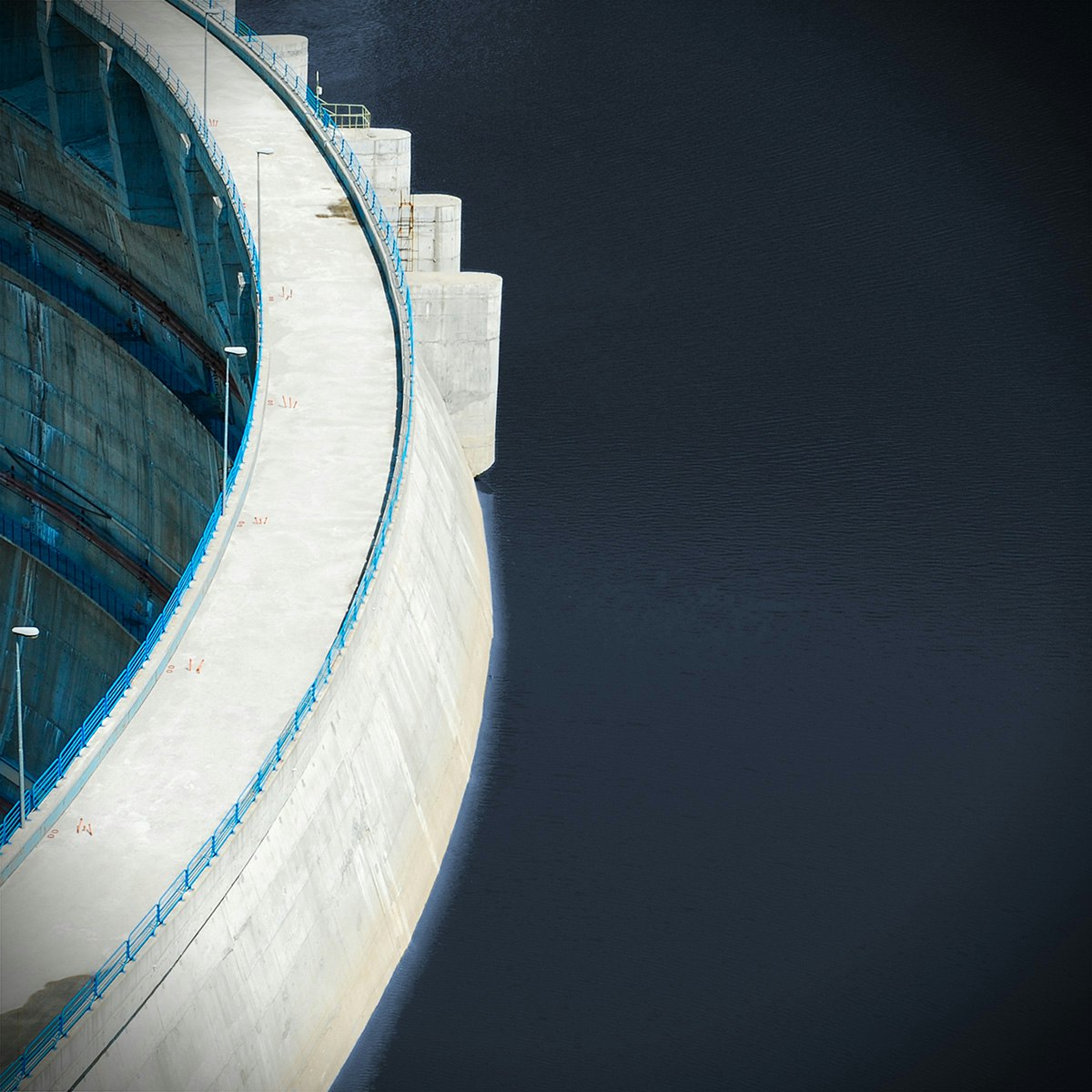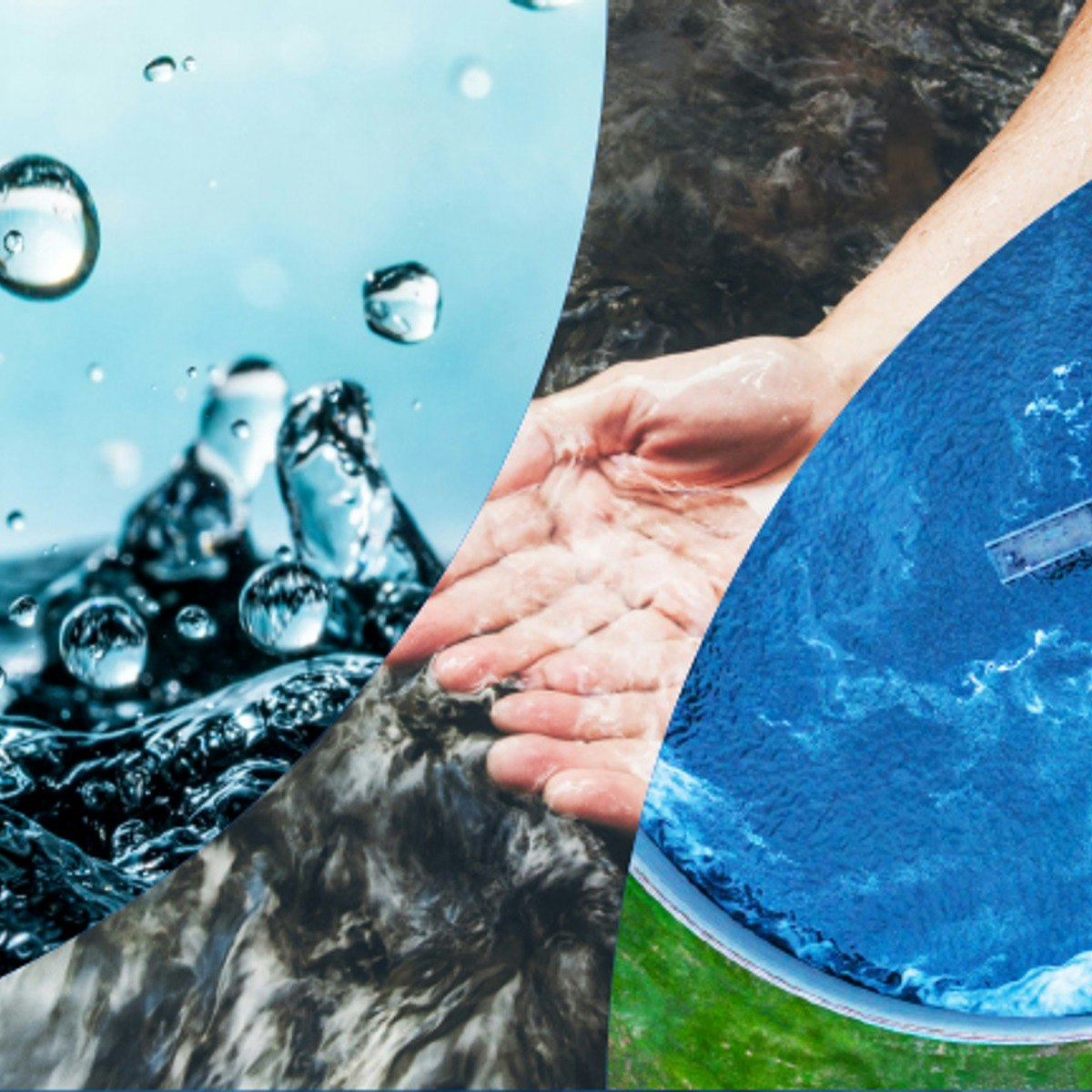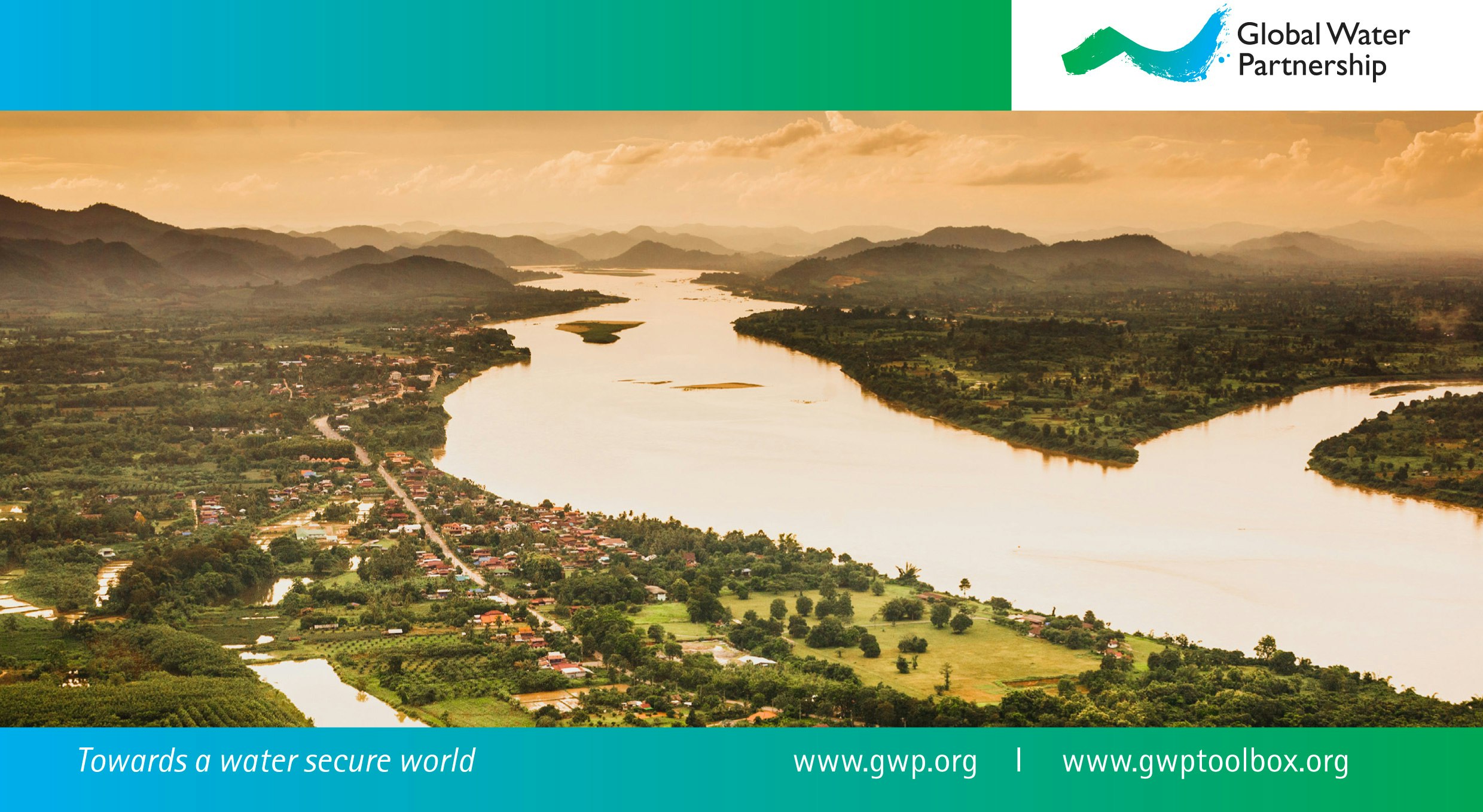Water Policy Analyst
Water Policy Analyst: Shaping Our Water Future
Water Policy Analysts play a crucial role in navigating the complex world of water resources. They are professionals dedicated to researching, developing, and evaluating policies related to water use, allocation, quality, and management. This field sits at the intersection of environmental science, law, economics, and public administration, requiring a blend of analytical rigor and adept communication skills.
Working as a Water Policy Analyst involves tackling some of society's most pressing challenges, from ensuring equitable access to clean drinking water to mitigating the impacts of climate change on water availability. It offers the chance to contribute to sustainable development, protect vital ecosystems, and influence decisions that affect communities, agriculture, and industries. The work is dynamic, often involving collaboration with diverse groups, including government agencies, non-profits, community leaders, and scientific experts.
Introduction to Water Policy Analysis
This section introduces the fundamental aspects of water policy analysis, providing context for those exploring this career path.
Defining the Field: What is Water Policy Analysis?
Water policy analysis involves the systematic study and evaluation of governmental actions—or inactions—concerning water resources. Analysts examine the goals, effects, and effectiveness of policies related to water allocation, conservation, quality control, infrastructure development, and disaster management. Their work informs decision-makers and helps shape strategies for managing water sustainably and equitably.
The scope is broad, encompassing local issues like municipal water pricing and extending to international concerns such as transboundary river basin management. Analysts might investigate the economic impacts of water regulations, assess the environmental consequences of infrastructure projects, or study the social equity implications of water access policies. It's an inherently interdisciplinary field, drawing on knowledge from hydrology, economics, law, political science, and sociology.
Ultimately, water policy analysis aims to improve how societies manage water resources to meet current needs without compromising the ability of future generations to meet their own. This involves understanding complex natural systems, navigating intricate legal frameworks, and balancing competing interests.
For those interested in the foundational economic principles behind water management, understanding how water is valued and allocated is key.
Similarly, a grasp of the legal structures governing water rights and usage is essential.
A Look Back: Historical Context of Water Management
Human societies have managed water resources for millennia, from ancient irrigation systems in Mesopotamia to the complex aqueducts of the Roman Empire. Early efforts focused primarily on securing water for agriculture and domestic use, often involving large-scale infrastructure projects. Conflicts over water resources are also a recurring theme throughout history.
The industrial revolution brought new challenges, including widespread water pollution from factories and growing urban centers. This spurred the development of the first modern environmental regulations aimed at protecting water quality. The 20th century saw a massive expansion of dams, levees, and canals, driven by goals of economic development, flood control, and hydropower generation.
More recently, growing awareness of environmental limits, the impacts of climate change, and concerns about social equity have shifted the focus towards integrated water resource management (IWRM). This approach emphasizes sustainable use, stakeholder participation, and the interconnectedness of water quantity, quality, and ecosystem health. Today's water policy reflects this evolution, grappling with historical legacies while addressing contemporary and future challenges.
The Analyst's Role: Influence in Modern Governance
Water Policy Analysts are vital players in modern governance structures. They provide the evidence-based research and analysis that underpin sound water management decisions. Their work helps governments, international bodies, and other organizations design policies that are effective, efficient, and equitable.
Analysts translate complex scientific and economic information into accessible formats for policymakers and the public. They might draft policy briefs, write reports, develop models to predict policy outcomes, or present findings at legislative hearings. Their expertise is crucial for navigating the technical complexities and political sensitivities surrounding water issues.
By evaluating existing policies and proposing new solutions, analysts contribute to adaptive management—the process of adjusting strategies based on new information and changing conditions. This is particularly important in the face of climate change and other drivers of uncertainty. They act as bridges between science, policy, and the public, facilitating informed dialogue and decision-making.
Who's Involved: Key Stakeholders in Water Policy
Water policy affects a wide range of stakeholders, each with unique interests and perspectives. Government agencies at local, state, regional, and national levels are primary players, responsible for regulation, infrastructure, and planning. International organizations like the World Bank and the United Nations often play significant roles, particularly in developing countries and transboundary contexts, providing funding, expertise, and frameworks for cooperation.
Non-governmental organizations (NGOs) are also key stakeholders, advocating for environmental protection, social justice, or specific community interests. They often conduct independent research, engage in public education, and participate in policy debates. Community groups and indigenous populations hold vital local knowledge and have direct stakes in how water resources in their areas are managed.
Private sector actors, including agricultural producers, industries, and water utility companies, are major water users and are heavily influenced by water policy. Their compliance with regulations and participation in conservation efforts are critical. Engaging effectively with all these diverse stakeholders is a core function of water policy analysis, ensuring that policies are comprehensive, fair, and implementable.
Core Responsibilities of a Water Policy Analyst
This section details the day-to-day tasks and primary duties involved in this career.
Crafting and Assessing Policies
A central responsibility of a Water Policy Analyst is the development and evaluation of water-related policies. This involves identifying problems, researching potential solutions, and analyzing the likely impacts of different policy options. Analysts might assess the effectiveness of existing water conservation programs, propose new regulations to control pollution, or develop strategies for allocating water during droughts.
Policy evaluation requires rigorous analysis. Analysts use various methods to determine if a policy is achieving its intended goals, whether its benefits outweigh its costs, and if it has unintended consequences. This often involves collecting and interpreting data, reviewing scientific literature, and consulting with experts and affected stakeholders.
Developing new policies involves translating research findings and stakeholder input into concrete proposals. This could mean drafting legislation, writing regulatory guidelines, or creating implementation plans. Clear communication is essential to articulate the rationale behind policy recommendations and build support for their adoption.
These courses offer insights into the complexities of water resource management and the policy frameworks governing them.
Analyzing Water Resource Data
Data analysis is fundamental to water policy. Analysts must be adept at gathering, interpreting, and synthesizing information from various sources, including hydrological monitoring networks, economic surveys, environmental impact assessments, and population projections. This data informs understanding of water availability, usage patterns, quality issues, and the potential effects of policy interventions.
Techniques range from basic statistical analysis to complex modeling. Analysts might use statistical software to identify trends in water quality, employ economic models to assess the costs and benefits of infrastructure projects, or use hydrological models to simulate the effects of climate change on river flows. Increasingly, tools like Geographic Information Systems (GIS) are used to visualize spatial patterns and relationships.
The ability to present data clearly and effectively is crucial. Analysts often need to communicate complex quantitative information to non-technical audiences, using charts, maps, and concise summaries. Ensuring data quality and acknowledging uncertainties are also key aspects of responsible analysis.
Understanding the water cycle and how human activities impact it is foundational for data analysis in this field.
Engaging with Stakeholders
Water policy decisions rarely happen in isolation. Effective Water Policy Analysts must engage with a diverse array of stakeholders, including government officials, scientists, industry representatives, community groups, and the public. This involves facilitating dialogue, understanding different perspectives, and building consensus.
Stakeholder engagement can take many forms, such as organizing public meetings, conducting surveys, participating in advisory committees, or holding one-on-one consultations. The goal is to gather input, address concerns, and ensure that policies are informed by real-world experiences and needs. This process helps build legitimacy and support for policy decisions.
Strong communication and negotiation skills are essential for navigating potentially contentious issues. Analysts must be able to explain complex technical details clearly, listen actively to different viewpoints, and help find common ground among parties with conflicting interests. Building trust and maintaining positive relationships are key to successful stakeholder engagement.
Monitoring Regulatory Compliance
Once policies and regulations are in place, ensuring compliance is critical for achieving desired outcomes. Water Policy Analysts often play a role in monitoring how well regulations are being followed and whether they are effective in protecting water resources.
This may involve reviewing compliance reports submitted by industries or municipalities, analyzing monitoring data collected by regulatory agencies, or participating in field inspections. Analysts assess whether permit conditions are being met, identify instances of non-compliance, and evaluate the overall effectiveness of the regulatory framework.
Based on their findings, analysts may recommend adjustments to regulations, suggest improvements to enforcement strategies, or identify areas where additional support or resources are needed to facilitate compliance. This feedback loop is vital for ensuring that water policies remain relevant and achieve their environmental and public health objectives.
Key Concepts in Water Policy Analysis
This section delves into some of the core theoretical and practical concepts that underpin the field, particularly relevant for those pursuing deeper academic or research roles.
Frameworks for Water Rights
Understanding water rights is fundamental to water policy. Different legal systems have evolved distinct approaches to defining who has the right to use water, how much they can use, and under what conditions. These frameworks shape how water is allocated among competing users like agriculture, cities, industry, and the environment.
In the western United States, for example, the doctrine of prior appropriation ("first in time, first in right") is common, allocating rights based on historical use. In contrast, riparian rights systems, prevalent in the eastern US and other parts of the world, typically grant water use rights to landowners adjacent to a water body. Other systems may involve government permits, communal management, or market-based allocation mechanisms.
Water Policy Analysts must understand the specific legal framework governing water rights in their region. They analyze how these rights affect water use efficiency, equity, and environmental protection. Often, their work involves evaluating potential reforms to water rights systems to address issues like scarcity, conflict, or changing societal values.
These books offer deeper dives into the complexities of water allocation and the institutional structures surrounding water rights.
Adapting to Climate Change
Climate change poses significant challenges to water resource management. Rising temperatures, shifting precipitation patterns, increased frequency of extreme events like droughts and floods, and sea-level rise all impact water availability, quality, and demand. Water Policy Analysts are increasingly focused on developing strategies to adapt to these changes.
Adaptation strategies can include investing in more resilient infrastructure (e.g., expanding water storage, improving flood defenses), promoting water conservation and efficiency, diversifying water sources (e.g., through water recycling or desalination), and adjusting water allocation rules. Analysts evaluate the effectiveness and feasibility of these options, considering technical, economic, social, and environmental factors.
Predictive modeling plays a crucial role in understanding future climate impacts on water resources. Analysts use climate models and hydrological models to assess potential changes and inform adaptation planning. Integrating climate considerations into all aspects of water policy is becoming standard practice.
This course examines the critical intersection of water management and climate change.
Managing Transboundary Waters
Many of the world's major rivers and aquifers cross political boundaries, creating complex challenges for water management. Cooperation between countries or states sharing these resources is essential to prevent conflict and ensure sustainable use. Water Policy Analysts often work on issues related to transboundary water governance.
This involves understanding international water law principles, analyzing existing treaties and agreements, and facilitating diplomatic processes. Analysts might help negotiate water-sharing arrangements, develop joint monitoring programs, or assess the impacts of upstream developments on downstream users. The goal is to promote equitable and reasonable utilization of shared water resources.
Transboundary water management requires navigating different legal systems, political interests, and cultural contexts. Building trust and fostering communication among riparian states are crucial. Analysts contribute by providing objective technical analysis and helping identify mutually beneficial solutions.
These courses specifically address the challenges and strategies involved in managing shared water resources across borders.
Understanding the legal frameworks governing international rivers is also crucial.
The Economic Value of Water
Water is essential for life, but it is also an economic resource used in agriculture, industry, energy production, and households. Understanding the economic value of water is crucial for making informed policy decisions about its allocation and management. Water Policy Analysts often incorporate economic principles into their work.
Economic valuation techniques attempt to quantify the benefits derived from different water uses. This can involve estimating the value of water in crop production, its contribution to industrial output, or the willingness of households to pay for reliable water services. Valuing environmental benefits, such as healthy aquatic ecosystems or recreational opportunities, presents additional challenges but is increasingly important.
Economic analysis helps policymakers understand trade-offs, design efficient water pricing structures, evaluate the cost-effectiveness of infrastructure investments, and assess the economic impacts of regulations. While economic value is just one aspect to consider alongside social and environmental factors, it provides a critical lens for water policy analysis.
These books explore the economic dimensions of water resource management in detail.
Formal Education Pathways
Embarking on a career as a Water Policy Analyst typically requires specific educational foundations. This section outlines common academic routes.
Relevant Undergraduate Degrees
A bachelor's degree is generally the minimum educational requirement for entry-level positions in water policy. Several fields provide a strong foundation. Degrees in Environmental Science or Environmental Studies offer core knowledge about water systems, ecosystems, and environmental challenges.
Degrees in Public Policy, Public Administration, or Political Science equip students with an understanding of governance processes, policy analysis techniques, and stakeholder engagement. Economics degrees provide valuable skills in quantitative analysis and understanding resource allocation issues.
Other relevant undergraduate paths include Geography (especially physical geography or resource management focuses), Civil Engineering or Environmental Engineering (providing technical understanding of water infrastructure and treatment), or even International Relations for those interested in transboundary water issues. Regardless of the specific major, coursework in statistics, economics, writing, and communication is highly beneficial.
Graduate Programs and Specializations
While a bachelor's degree can open doors, many Water Policy Analyst roles, particularly those involving research, leadership, or specialized technical skills, require a master's degree or PhD. Graduate programs allow for deeper specialization in water resources management, policy analysis, or related fields.
Many universities offer master's programs specifically focused on Water Resources Management, Environmental Policy, or Environmental Science with a water concentration. These programs typically combine advanced coursework in hydrology, water quality, economics, law, and policy analysis with research or project-based work. Public Administration or Public Policy programs may also offer specializations relevant to water or environmental management.
For those aiming for academic research or high-level technical roles, a PhD in a relevant discipline (e.g., Hydrology, Environmental Engineering, Economics, Political Science, Geography) is often necessary. Doctoral programs involve extensive original research culminating in a dissertation.
Consider exploring programs that integrate policy with scientific understanding.
record:41p4l1
Research, Fieldwork, and Internships
Practical experience is invaluable for aspiring Water Policy Analysts. Internships with government agencies (like the EPA or state environmental departments), consulting firms, non-profit organizations, or research institutions provide real-world exposure to the field. These experiences allow students to apply classroom knowledge, develop professional skills, and build networks.
Engaging in research projects, either through coursework, independent study, or assistantships, is also highly beneficial, particularly for those considering graduate school or research-oriented careers. This could involve assisting faculty with hydrological modeling, analyzing policy documents, or collecting field data on water quality.
Fieldwork, while perhaps more common in purely scientific roles, can also be part of a policy analyst's training or work, especially when assessing environmental conditions or the impacts of specific projects. Experiences that involve data collection, site assessment, or community interaction provide practical grounding for policy analysis.
Digital Learning and Skill Development
Beyond formal degrees, continuous learning and skill development are crucial, especially given the evolving technological landscape. Online learning offers flexible pathways to acquire new skills or deepen existing expertise.
Mastering GIS and Data Visualization
Geographic Information Systems (GIS) are powerful tools for analyzing and visualizing spatial data related to water resources. Proficiency in GIS software allows analysts to map water quality issues, model water distribution networks, assess flood risks, and analyze land use impacts on watersheds. Many government agencies and consulting firms rely heavily on GIS.
Data visualization skills go hand-in-hand with GIS. The ability to create clear, informative maps, charts, and infographics is essential for communicating complex data to policymakers and the public. Online courses provide excellent opportunities to learn GIS software (like ArcGIS or QGIS) and data visualization techniques using tools like Tableau or programming libraries.
Developing these technical skills can significantly enhance your resume and capabilities as a Water Policy Analyst. OpenCourser offers a wide range of courses in Data Science and spatial analysis that can help build this expertise.
These courses provide introductions to relevant spatial analysis and modeling tools.
Exploring Policy Simulation Tools
Policy simulation models are increasingly used to forecast the potential impacts of different water management strategies. These models can simulate how changes in regulations, infrastructure investments, or climate conditions might affect water availability, economic outcomes, or environmental quality. Familiarity with these tools can be advantageous.
While developing complex simulation models often requires specialized expertise, understanding how these models work and how to interpret their outputs is valuable for policy analysts. Some models are accessible through specialized software, while others might involve programming or spreadsheet-based analysis.
Online resources and workshops may offer training in specific policy simulation tools or modeling approaches relevant to water resources. This knowledge helps analysts engage more effectively with technical experts and critically evaluate model-based policy recommendations.
Applying Remote Sensing in Hydrology
Remote sensing technologies, using data from satellites and aircraft, provide valuable information for water resource management over large areas. Satellite imagery can be used to monitor changes in land cover, estimate precipitation, measure snowpack depth, track surface water extent, and even infer soil moisture levels. This data complements ground-based monitoring.
Analysts who understand remote sensing principles and how to access and interpret satellite data can bring unique insights to water policy discussions. While detailed image processing often requires specialized training, foundational knowledge of remote sensing applications in hydrology is increasingly useful.
Online courses in remote sensing, often found within Environmental Science or Geography curricula, can provide this foundational understanding. Learning how this technology integrates with GIS further enhances analytical capabilities.
Collaborating Virtually on Policy Teams
Much policy work involves collaboration, and in today's world, this often happens virtually. Proficiency with online collaboration platforms, document sharing tools, and virtual meeting software is essential for effective teamwork. Water Policy Analysts frequently work with colleagues and stakeholders spread across different locations.
Skills in managing virtual projects, facilitating online discussions, and presenting information effectively in a remote setting are becoming standard requirements. This includes being comfortable with tools for shared document editing, project management software, and video conferencing platforms.
While these skills are often learned on the job, specific training in virtual collaboration or project management can be beneficial. Online courses focusing on Professional Development or Communication Studies may cover relevant techniques.
Career Progression in Water Policy
A career in water policy offers various pathways for growth and development across different sectors.
Starting Out: Entry-Level Roles
Entry-level positions for Water Policy Analysts are often found within government agencies at the state or local level, environmental consulting firms, or non-profit advocacy groups. Titles might include Policy Analyst, Research Assistant, Environmental Specialist, or Program Coordinator.
In these roles, typical tasks involve gathering and analyzing data, researching policy issues, writing reports or memos, assisting with stakeholder outreach, and supporting senior analysts or managers. These positions provide foundational experience in understanding policy processes, regulatory frameworks, and the practical challenges of water management.
A bachelor's degree in a relevant field is usually required, and internships or research experience can be significant advantages. Strong analytical, writing, and communication skills are crucial from the outset.
Roles like Water Resources Specialist often overlap with policy analysis.
Moving Up: Mid-Career Transitions
With several years of experience, Water Policy Analysts can advance to roles with greater responsibility and influence. This might involve leading specific policy initiatives, managing projects or small teams, specializing in a particular area (like water quality or climate adaptation), or representing their organization in negotiations or public forums.
Mid-career professionals may transition between sectors. An analyst might move from a government agency to a consulting firm, or from a non-profit to an international organization like the World Bank or the UN. A master's degree often becomes more important for these higher-level positions, enhancing specialized knowledge and credibility.
Opportunities may arise in international development, working on water security projects in other countries. These roles often require experience in cross-cultural collaboration and understanding global water challenges.
Consider exploring related fields like Environmental Engineering or Science for broader context.
Leadership and Regulation
Experienced Water Policy Analysts can progress into leadership positions within government agencies, regulatory bodies, or large non-profits. These roles might involve overseeing entire policy programs, managing large teams, setting strategic direction, and engaging with high-level decision-makers.
Positions such as Director of Water Policy, Chief of Water Resources Planning, or Senior Program Manager require extensive experience, deep subject matter expertise, and strong leadership skills. A proven track record of successful policy development and implementation is essential.
Working within regulatory bodies involves developing, implementing, and enforcing water-related laws and standards. This requires a thorough understanding of legal frameworks, scientific principles, and the ability to balance environmental protection with economic considerations.
Higher-level roles often demand advanced degrees and significant professional experience.
Consulting Opportunities
The private sector, particularly environmental and engineering consulting firms, offers numerous opportunities for Water Policy Analysts. Consultants provide expert advice and analytical services to government agencies, private companies, and other organizations on water-related issues.
Consulting work can be diverse, ranging from conducting environmental impact assessments for infrastructure projects, developing water management plans for corporations, analyzing the economic impacts of regulations, to supporting litigation related to water rights. It often involves working on multiple projects simultaneously and requires strong project management and client communication skills.
This path can offer exposure to a wide variety of issues and clients. Advancement typically involves taking on more complex projects, managing client relationships, and developing specialized expertise. Some analysts eventually establish their own independent consulting practices.
Global Challenges in Water Policy Analysis
Water Policy Analysts grapple with complex, interconnected challenges that transcend borders and affect diverse populations.
Balancing Agriculture and Urban Needs
Competition for water between agriculture, which accounts for roughly 70% of global freshwater withdrawals, and growing urban centers is a major challenge. As cities expand and populations increase, municipal and industrial water demands rise, often creating tension with the needs of farmers who rely on water for irrigation.
Water Policy Analysts work to develop strategies for allocating water efficiently and equitably among these competing sectors. This might involve implementing water markets, promoting water-saving technologies in agriculture and cities, developing integrated water management plans for river basins, or negotiating water-sharing agreements.
Balancing these demands requires careful consideration of economic impacts, food security, environmental flows, and social equity. Finding solutions that satisfy all stakeholders is often difficult and requires innovative policy approaches.
This course looks specifically at agricultural water management challenges.
Addressing Groundwater Depletion
Groundwater, stored in underground aquifers, is a vital source of freshwater for drinking water and irrigation in many parts of the world. However, over-extraction—pumping out water faster than it can be naturally replenished—is leading to alarming rates of groundwater depletion in numerous regions.
This depletion can cause wells to run dry, land subsidence, saltwater intrusion in coastal areas, and reduced flows in rivers and streams that depend on groundwater discharge. Water Policy Analysts work on policies to manage groundwater sustainably, which can include regulating pumping, promoting artificial recharge techniques, monitoring aquifer levels, and encouraging water conservation.
Addressing groundwater depletion often involves difficult decisions about limiting water use, which can have significant economic and social consequences. Effective governance structures and stakeholder participation are crucial for developing and implementing sustainable groundwater management plans.
This comprehensive handbook covers many aspects of groundwater management.
Ensuring Equity in Water Access
Access to safe and affordable water and sanitation is recognized as a human right, yet billions of people worldwide still lack these basic services. Disparities often exist between urban and rural areas, wealthy and poor communities, and different ethnic or social groups. Ensuring equitable access is a core challenge for water policy.
Water Policy Analysts examine the barriers to access, which can include inadequate infrastructure, unaffordable prices, discriminatory practices, or lack of political representation. They develop policies aimed at extending services to underserved populations, ensuring affordability, and promoting community participation in water management.
Addressing water equity requires integrating social justice considerations into policy design and implementation. This involves understanding the specific needs and vulnerabilities of different groups and ensuring that policies do not inadvertently exacerbate existing inequalities. According to the United Nations, 2.2 billion people still lack access to safely managed drinking water as of 2023.
These courses address water security and access issues, particularly in developing contexts.
Managing Water-Related Disaster Risks
Water-related disasters, such as floods and droughts, are becoming more frequent and intense due to climate change and other factors. These events can cause loss of life, displace populations, damage infrastructure, and have devastating economic impacts. Managing these risks is a critical aspect of water policy.
Water Policy Analysts contribute to disaster risk management by evaluating vulnerabilities, assessing the effectiveness of flood control measures (like levees and dams) and drought management plans, and developing policies for preparedness, response, and recovery. This includes land-use planning to avoid development in high-risk areas, establishing early warning systems, and ensuring adequate resources for emergency response.
An integrated approach is needed, combining structural measures (like infrastructure) with non-structural measures (like zoning regulations, insurance programs, and public education). Analysts help policymakers weigh the costs and benefits of different risk reduction strategies and promote resilience in the face of increasing water-related hazards. The World Bank notes that water-related disasters account for a large percentage of deaths related to natural disasters.
Emerging Trends in Water Policy Analysis
The field of water policy is constantly evolving, driven by technological advancements, new scientific understanding, and changing societal priorities.
AI in Water Forecasting and Management
Artificial intelligence (AI) and machine learning are emerging as powerful tools in water resource management. AI algorithms can analyze vast amounts of data from sensors, satellites, and climate models to improve forecasts of water availability, predict water quality changes, optimize the operation of water treatment plants, and detect leaks in distribution systems.
Water Policy Analysts need to understand the potential and limitations of these technologies. While AI offers opportunities for more efficient and data-driven management, its application raises questions about data privacy, algorithmic bias, and the need for skilled personnel. Policy frameworks may be needed to guide the responsible use of AI in the water sector.
As these technologies mature, analysts will play a role in evaluating their effectiveness, assessing their economic implications, and integrating them into broader water management strategies. Familiarity with data science concepts is becoming increasingly valuable.
Circular Economy Models for Water
The concept of a circular economy—moving away from a linear "take-make-dispose" model towards one that emphasizes reuse, recycling, and resource recovery—is gaining traction in the water sector. This involves viewing wastewater not as waste, but as a resource from which water, energy, and nutrients can be recovered.
Water Policy Analysts are exploring policies that promote water recycling and reuse for non-potable purposes (like irrigation or industrial processes), encourage the recovery of energy from wastewater treatment, and facilitate the safe reuse of nutrients captured from sewage. This shift requires changes in regulations, infrastructure investments, and public perception.
Implementing circular economy principles in water management can enhance water security, reduce pollution, and create economic opportunities. Analysts evaluate the technical feasibility, economic viability, and environmental benefits of different circular water strategies.
Decentralized Water Governance
Traditional water management often relies on centralized, top-down approaches. However, there is growing interest in more decentralized models of governance that empower local communities, water user associations, or regional bodies to play a greater role in decision-making.
Decentralized approaches can potentially lead to solutions that are better tailored to local conditions, increase stakeholder buy-in, and improve responsiveness. However, they also raise challenges related to capacity building, coordination across different scales, and ensuring equitable outcomes. Water Policy Analysts study the effectiveness of different governance models and identify best practices for decentralization.
This trend involves exploring innovative institutional arrangements and fostering collaboration between different levels of government and civil society. Analysts help design governance structures that balance local autonomy with basin-wide or national objectives.
Financing Climate-Resilient Infrastructure
Adapting water infrastructure to the impacts of climate change requires significant investment. Building new reservoirs, upgrading treatment plants, reinforcing flood defenses, and implementing nature-based solutions (like wetland restoration) all carry substantial costs. Mobilizing the necessary finance is a major challenge.
Water Policy Analysts are involved in exploring innovative financing mechanisms, such as green bonds, public-private partnerships, payments for ecosystem services, and blended finance models that combine public and private capital. They analyze the financial feasibility of different adaptation projects and develop strategies to attract investment.
Ensuring that investments are directed towards the most effective and equitable solutions requires careful analysis and policy design. Analysts play a key role in making the economic case for climate-resilient water infrastructure and developing policies that facilitate its financing and implementation.
Frequently Asked Questions (Career Focus)
Here are answers to common questions about pursuing a career as a Water Policy Analyst.
What is the typical salary range?
Salaries for Water Policy Analysts can vary significantly based on factors like geographic location, sector (government, private consulting, non-profit), level of education, and years of experience. Entry-level positions might start in the $50,000 to $65,000 range, while mid-career analysts can earn considerably more.
According to recent data from ZipRecruiter (as of April 2025), the average annual pay for a "Water Analyst" in the United States is around $77,156, with a common range between $49,000 (25th percentile) and $104,000 (75th percentile). Another ZipRecruiter search specifically for "Water Policy Analyst" suggests an average around $100,949, with a 25th percentile at $83,000 and a 90th percentile potentially reaching $116,500 or higher in certain locations or senior roles. Zippia reports an average salary for "Water Quality Analyst" around $50,197. These figures illustrate the variability depending on the specific title and responsibilities.
Salaries in major metropolitan areas or regions with high demand (like California or Washington D.C.) tend to be higher. Those working for federal agencies or large consulting firms may also command higher salaries than those in state/local government or smaller non-profits. Advanced degrees (Master's or PhD) generally correlate with higher earning potential.
What are the essential skills?
A successful Water Policy Analyst needs a blend of technical and soft skills. Strong analytical and research skills are paramount for gathering evidence, interpreting data, and evaluating policy options. Excellent written and verbal communication skills are essential for conveying complex information clearly and persuasively to diverse audiences.
Technical skills often include proficiency in data analysis software (like Excel, R, or Python), GIS software, and potentially modeling tools. Understanding relevant scientific principles (hydrology, ecology), economics, and legal/regulatory frameworks is also crucial. Familiarity with policy analysis methodologies is key.
Soft skills are equally important. These include critical thinking, problem-solving, attention to detail, collaboration, stakeholder engagement, negotiation, and the ability to work independently and manage projects. Adaptability and a willingness to learn are vital in this evolving field.
Government vs. Private Sector Opportunities?
Both government agencies (federal, state, local) and the private sector (consulting firms, industry) offer significant opportunities for Water Policy Analysts. Government roles often focus on regulation, planning, and implementing public policies. They offer stability and the chance to work directly on public interest issues.
Private sector consulting provides exposure to a wider variety of projects and clients, potentially faster-paced environments, and often higher salaries. Consultants help both government and private clients navigate regulations, conduct assessments, and develop strategies. Industry roles might focus on ensuring corporate compliance and sustainability.
Non-profit organizations also employ analysts to conduct research, advocate for specific policies, and engage in public education. The choice between sectors often depends on individual career goals, work-life balance preferences, and interest areas.
Are certifications required or helpful?
While specific certifications are not typically mandatory to work as a Water Policy Analyst, certain credentials can enhance qualifications and demonstrate expertise. For those with technical backgrounds, certifications related to GIS (like GISP), project management (like PMP), or specific environmental specialties might be beneficial.
Some organizations, like the Institute of Hazardous Materials Management or the Ecological Society of America, offer certifications relevant to environmental professionals, which could be applicable depending on the specific focus area. However, strong academic credentials, relevant work experience, and demonstrated skills are generally more critical than certifications for policy-focused roles.
Continuous learning through professional development courses, workshops, and conferences is highly encouraged to stay current with evolving science, technology, and policy trends in the water sector.
How might automation impact this field?
Automation and AI are likely to impact the tools and methods used by Water Policy Analysts, rather than replacing the role itself. AI can enhance data analysis capabilities, improve modeling accuracy, and automate certain research tasks, potentially freeing up analysts to focus on higher-level interpretation, strategy development, and stakeholder engagement.
Skills in utilizing these new technologies, interpreting AI-driven analyses, and understanding their limitations will become increasingly important. The core functions of critical thinking, policy evaluation, ethical consideration, communication, and navigating complex human systems are less susceptible to automation.
The need for professionals who can bridge the gap between technical analysis and policy implementation, understand societal impacts, and facilitate complex decision-making processes is likely to remain strong, even as tools evolve.
Where is the geographic demand highest?
Demand for Water Policy Analysts exists across the United States and globally, but certain regions face more acute water challenges, potentially leading to higher demand. In the U.S., arid and semi-arid regions like the West and Southwest (California, Arizona, Colorado) often have significant focus on water scarcity, allocation, and transboundary issues (e.g., the Colorado River).
Coastal areas face challenges related to sea-level rise, saltwater intrusion, and stormwater management. Regions with intensive agriculture or significant industrial activity may have greater needs related to water quality and pollution control. Major policy centers like Washington D.C. also host numerous opportunities in federal agencies, consulting firms, and national non-profits.
Internationally, demand is high in regions facing severe water stress, rapid development, or complex transboundary water disputes, particularly in parts of Asia, Africa, and the Middle East. Opportunities exist within national governments, international organizations, and development agencies.
The overall job outlook for environmental scientists and specialists, a category that often includes policy analysts, is projected to grow faster than the average for all occupations. The U.S. Bureau of Labor Statistics projected 7% growth for this field from 2023 to 2033, driven by environmental regulations and increasing concerns about resource management and climate change.
Pursuing a career as a Water Policy Analyst offers a path to engage deeply with critical environmental and societal issues. It requires a commitment to rigorous analysis, continuous learning, and effective communication. For those passionate about shaping a sustainable water future, it can be a challenging yet highly rewarding profession.















